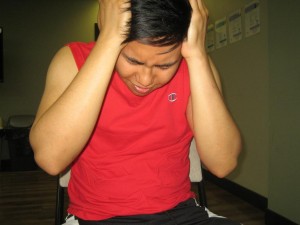Overview Of Narcolepsy
- Narcolepsy is a long-lasting neurological condition affecting a portion of the brain that controls sleep.
- Those experiencing narcolepsy can experience extreme daytime drowsiness and unexpected loss of muscle control, often activated by strong feelings.
- As a result, an individual might fall asleep while at work, cooking, or even while driving.
- Study what you can do to decrease symptoms, develop awareness, and enjoy a full and vigorous life.
Narcolepsy is a long-lasting neurological condition affecting a portion of the brain that controls sleep.
Symptoms Of Narcolepsy
- Most casualties experience their first symptoms of narcolepsy usually between the ages of 10 and 25.
- Symptoms can differ significantly from one person to another, but the key narcolepsy symptoms are extreme daytime drowsiness.
- Additional symptoms of narcolepsy might be connected to your irregular REM sleep, as well as illusions, sleep paralysis, and unexpected loss of muscle control.
Two of the most frequent narcolepsy symptoms—extreme daytime drowsiness and loss of muscle control—are often associated to your emotional well-being. You might tend to display these symptoms when you experience strong emotions, such as happiness, grief, disbelief, or frustration.
Common narcolepsy symptoms comprise of:
- Loss of muscle control (Cataplexy). Regularly, narcolepsy might cause you to have an unexpected loss of muscle control while wide-awake, generally activated by strong feelings, such as smiling or crying.
- Hallucinations. Some individuals with narcolepsy experience intense, sometimes terrifying, graphic or audio sensations while falling asleep or upon wakening.
- Sleep paralysis. You might be incapable of moving or talking at the start or end of sleep.
- Microsleep is a very short-lived sleep episode where you continue to function (chat, pack things away, etc.), and then wake with no recollection of the activities.
- Night-time restlessness. If you experience narcolepsy, you might have stages of restlessness at night with hot flashes, increased heart rate, and occasionally intense awareness.

